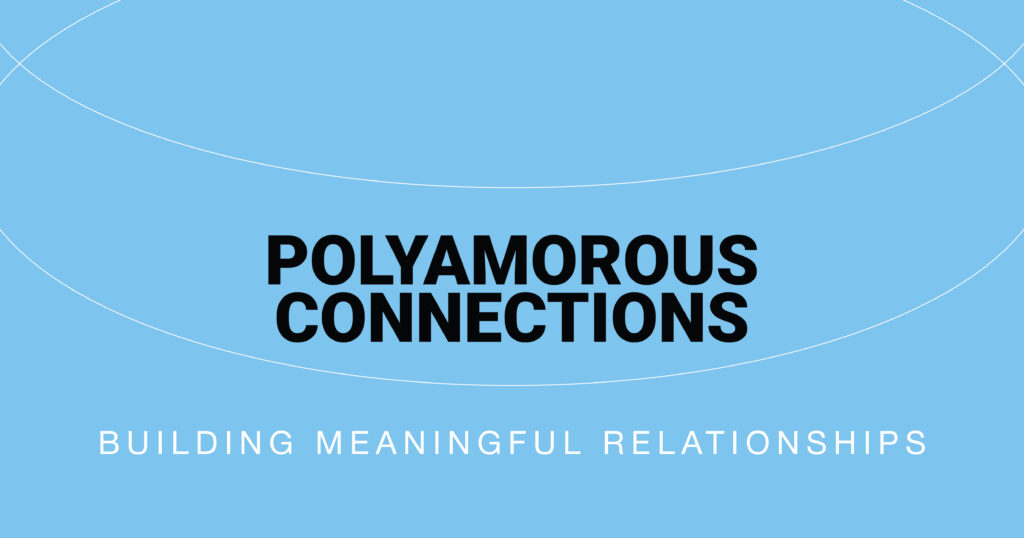Polyamorous relationships challenge traditional views of love and partnership, offering a framework where individuals can form multiple consensual romantic connections. Unlike monogamy, polyamory emphasizes ethical non-monogamy, prioritizing open communication, mutual consent, and emotional intimacy among all partners. This approach fosters diverse, meaningful relationships but requires careful navigation of emotions, time, and boundaries.
With mental health support, such as that provided by organizations like Clear Mind Treatment, individuals can thrive in these dynamics. This blog explores the foundations of polyamory, strategies for building strong connections, and how therapy can enhance these relationships.
Understanding Polyamory
Polyamory, derived from the Greek “poly” (many) and Latin “amor” (love), refers to the practice of engaging in multiple romantic relationships with the consent of all involved. Ethical non-monogamy distinguishes polyamory from infidelity, as transparency and agreement are central. According to a 2021 study by the Kinsey Institute, about 10% of adults in the U.S. have engaged in some form of consensual non-monogamy, reflecting growing acceptance.
Polyamory varies widely, encompassing:
- Hierarchical polyamory: Partners have primary, secondary, or tertiary roles based on commitment levels.
- Non-hierarchical polyamory: All partners are considered equal in importance.
- Solo polyamory: Individuals prioritize independence while maintaining multiple relationships.
Each structure demands clear boundaries and communication to ensure consensual relationships that respect everyone’s needs.
Building Emotional Intimacy
Emotional intimacy is the cornerstone of polyamorous relationships, fostering trust and connection across multiple partners. Unlike monogamy, where intimacy often focuses on one partner, polyamory requires nurturing deep bonds with several individuals simultaneously. This can amplify emotional fulfillment but also presents unique challenges.
Strategies to cultivate emotional intimacy include:
- Active listening: Fully engaging with a partner’s feelings without judgment.
- Regular check-ins: Scheduling time to discuss emotions and relationship dynamics.
- Vulnerability: Sharing fears, desires, and insecurities to build trust.
A 2019 article from Psychology Today highlights that emotional intimacy in open relationships correlates with higher relationship satisfaction when partners prioritize empathy and openness.
| Aspect | Monogamy | Polyamory |
| Emotional Focus | Single partner | Multiple partners |
| Time Allocation | Dedicated to one relationship | Divided among partners |
| Intimacy Challenges | Depth with one person | Balancing depth across relationships |
| Communication Needs | Moderate | High, due to multiple dynamics |
Effective Communication in Polyamory
Communication is the backbone of polyamorous relationships, ensuring all partners feel valued and heard. Ethical non-monogamy thrives on transparency, where partners openly discuss desires, boundaries, and concerns. Miscommunication can lead to misunderstandings or hurt feelings, making regular dialogue essential.

Key communication practices include:
- Setting boundaries: Clearly defining what is acceptable, such as time spent with other partners.
- Using “I” statements: Expressing feelings without blaming others (e.g., “I feel overwhelmed” instead of “You’re neglecting me”).
- Conflict resolution: Addressing issues promptly through calm, constructive discussions.
Tools like shared calendars or group chats can streamline communication, especially in larger polycules (networks of interconnected partners).
Balancing Time and Attention
Time management is critical in polyamory, as partners must equitably distribute their attention. Unlike monogamy, where one relationship takes precedence, polyamory requires scheduling to ensure no partner feels neglected. This can be challenging, particularly in hierarchical structures where primary partners may demand more time.
Effective strategies include:
- Prioritizing quality time: Planning meaningful activities, like date nights or shared hobbies.
- Transparent scheduling: Using tools like Google Calendar to track commitments.
- Flexibility: Adapting to partners’ changing needs or unexpected conflicts.
Balancing time fosters fairness and strengthens consensual relationships by showing respect for each partner’s importance.
Managing Jealousy and Insecurity
Jealousy is a common emotion in polyamorous relationships, but it can be managed with intentional strategies. Unlike monogamy, where jealousy often stems from exclusivity breaches, polyamory requires addressing insecurities about shared attention or perceived favoritism.
Coping Strategies
- Self-reflection: Identifying the root cause of jealousy, such as fear of inadequacy.
- Open dialogue: Discussing feelings with partners to seek reassurance or solutions.
- Compersion: Embracing joy in a partner’s happiness with others, a hallmark of polyamory.
A 2020 study from the Journal of Sex Research found that jealousy management techniques, like reframing negative thoughts, significantly improve relationship satisfaction in non-monogamy.
| Emotion | Trigger in Polyamory | Management Strategy |
| Jealousy | Partner spending time with others | Open communication, self-reflection |
| Insecurity | Fear of being less valued | Reassurance from partners |
| Envy | Desire for another’s connection | Focusing on personal growth |
| Compersion | Partner’s joy with others | Cultivating empathy and gratitude |
Creating a Supportive Community
Polyamorous individuals often benefit from a supportive community that understands their lifestyle. This can include friends, family, or polyamorous-specific groups, both online and offline. Communities provide a space to share experiences, seek advice, and combat stigma surrounding non-monogamy.
Resources like the Polyamory Society’s website offer forums and educational materials to connect with others. Engaging with such communities fosters a sense of belonging and reinforces mental health by reducing isolation.
Therapy for Polyamorous Dynamics
Therapy can play a pivotal role in navigating the complexities of polyamorous relationships. Mental health professionals trained in non-monogamy can help partners address communication breakdowns, jealousy, or boundary issues. Therapy also provides a safe space to explore personal insecurities or societal pressures.
Approaches like couples counseling or individual therapy can:
- Enhance emotional regulation.
- Improve conflict resolution skills.
- Support partners in defining healthy boundaries.
Therapists familiar with polyamory, such as those at Clear Mind Treatment, offer tailored guidance to ensure all partners feel supported.
Thrive With Clear Mind Treatment
Polyamorous relationships offer a unique path to love and connection, but they require dedication to communication, emotional intimacy, and jealousy management. By embracing ethical non-monogamy and seeking support, individuals can build fulfilling, consensual relationships that enrich their lives. For those navigating these dynamics, Clear Mind Treatment provides expert mental health support tailored to polyamory’s unique challenges. Whether you’re addressing jealousy, refining communication, or seeking personal growth, their therapists are ready to guide you toward healthier connections. Contact Clear Mind Treatment today to learn more or schedule a consultation.

FAQs
What defines ethical non-monogamy in polyamorous relationships?
Ethical non-monogamy involves engaging in multiple romantic or sexual relationships with the full knowledge and consent of all partners. In polyamory, this means fostering transparency, setting clear boundaries, and prioritizing mutual respect to ensure all relationships are consensual and equitable.
How can communication foster emotional intimacy across multiple partners?
Effective communication, such as regular check-ins and active listening, builds trust and understanding among partners. By openly sharing feelings and needs, individuals can create deeper emotional bonds, ensuring each partner feels valued and connected despite the complexity of multiple relationships.
What are effective strategies for managing jealousy in polyamory?
Strategies like self-reflection, open dialogue with partners, and practicing compersion help manage jealousy. Addressing the root causes of insecurity and seeking reassurance from partners can transform jealousy into an opportunity for personal growth and stronger connections.
How does therapy support healthy polyamorous relationships?
Therapy provides tools to navigate communication challenges, jealousy, and boundary-setting in polyamory. Mental health professionals, like those at Clear Mind Treatment, offer tailored strategies to enhance emotional regulation and foster healthier dynamics among partners.
What strategies help maintain healthy consensual relationships in a polyamorous context?
Maintaining healthy consensual relationships requires clear communication, mutual respect, and regular boundary discussions. Scheduling quality time, practicing transparency, and addressing conflicts promptly ensure all partners feel valued and supported in the relationship structure.








